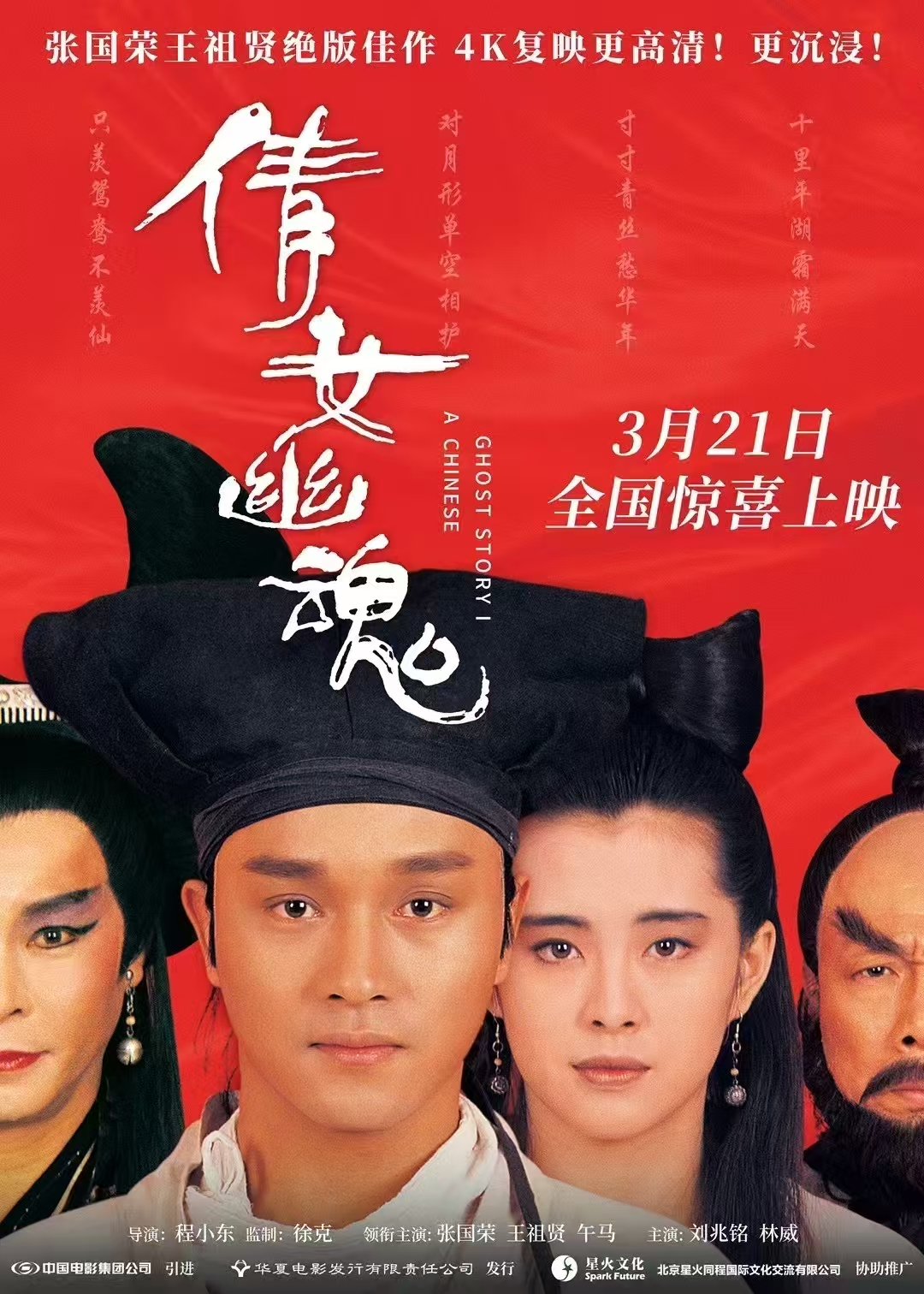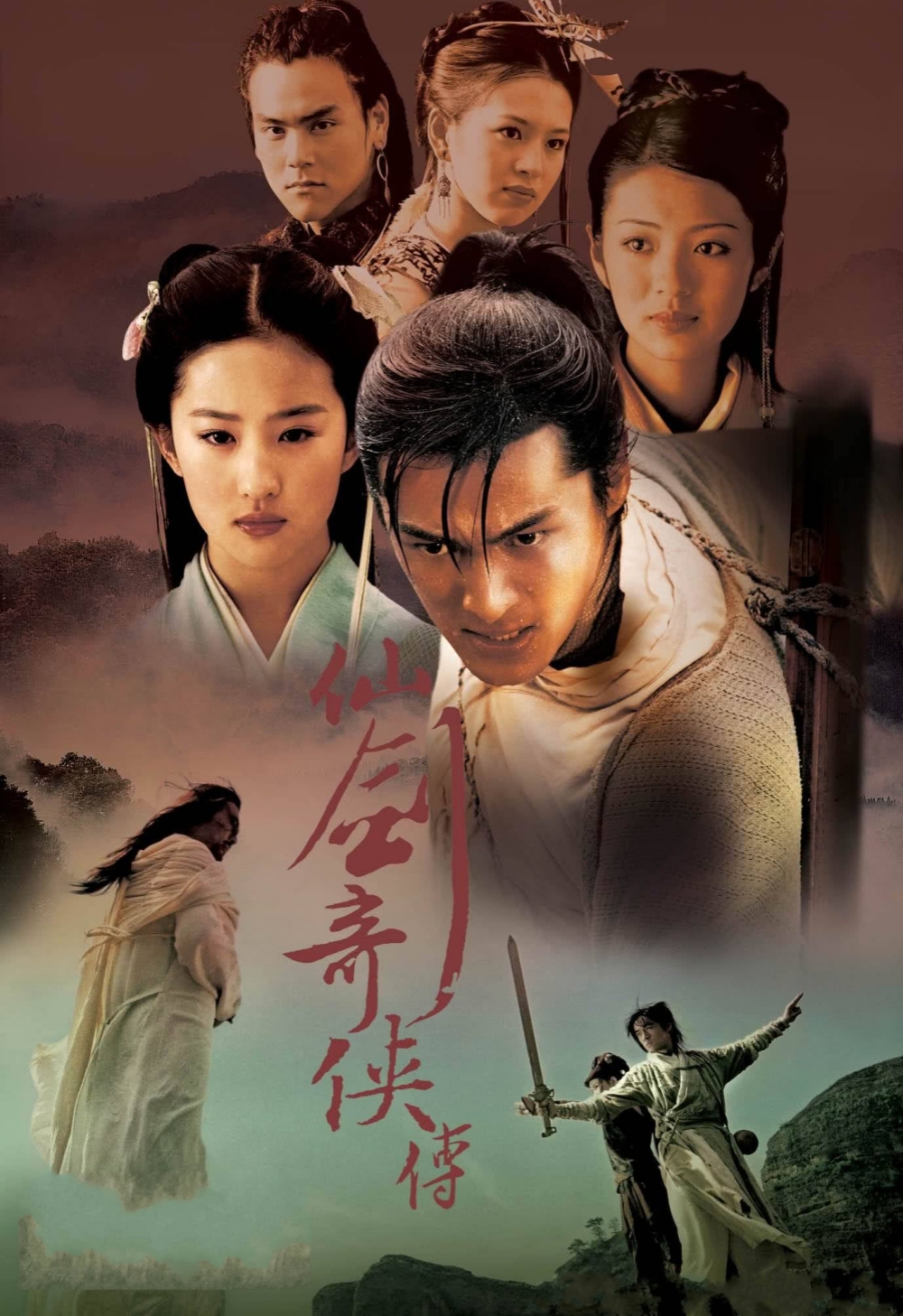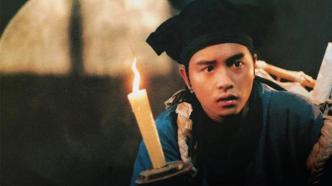
Editor's note: This is a nostalgic theater.
Thanks to the recent Shanghai Special Film Festival, I finally saw the 1987 version of "A Chinese Ghost Story" on the big screen. It's a wonderful experience, mixed with emotion about the viewing itself. Memories of renting discs from a small video store when I was young and watching Hong Kong movies on cassette tapes at home a little earlier come flooding back. The scholars, female ghosts, swordsmen, and even the terrifying tree demons on the screen are all extremely vivid and vivid in the process of time. It is full of charm, just like Hong Kong movies that were booming back then.
It was a period that now seems almost golden in terms of movies, with so many beauties and dazzling films. I still remember my exclamation when I saw the female ghost Xiaoqian in the moonlight for the first time. Her clothes were fluttering and her black hair was brushing her face. Her eyes were full of soul-stirring sorrow, coldness and beauty. That kind of shocking and unforgettable look. The feeling is really indescribable.

"A Chinese Ghost Story" (1987) poster
"A Chinese Ghost Story" is adapted from Pu Songling's famous story "Nie Xiaoqian" in "Strange Stories from a Chinese Studio". Pu Songling heard from Li Yu, a talented writer in Jinhua, a folk legend about a female ghost who was coerced to harm a scholar but was saved by the scholar. He was very interested, so he added many scenes, dialogues, and details to create the twists and turns of Ning Caichen and Nie Xiaoqian. love story.
In the original work, Ning Caichen took out Xiaoqian's bones and took them back to Ning's study for burial. They were not pursued by monsters on the way. The two first treated each other as brothers and sisters. Later, Xiaoqian won the favor of Ning's mother by virtue of her intelligence, ability, courtesy and affection. After his wife died of a serious illness, the two got married. A few years later, the sword bag left by Yan Chixia subdued the Jinhua monster who came back from his injury. At the end of the story, Ning Caichen won the ranking, Xiaoqian and his concubine both gave birth to promising sons, a typical Chinese happy ending.
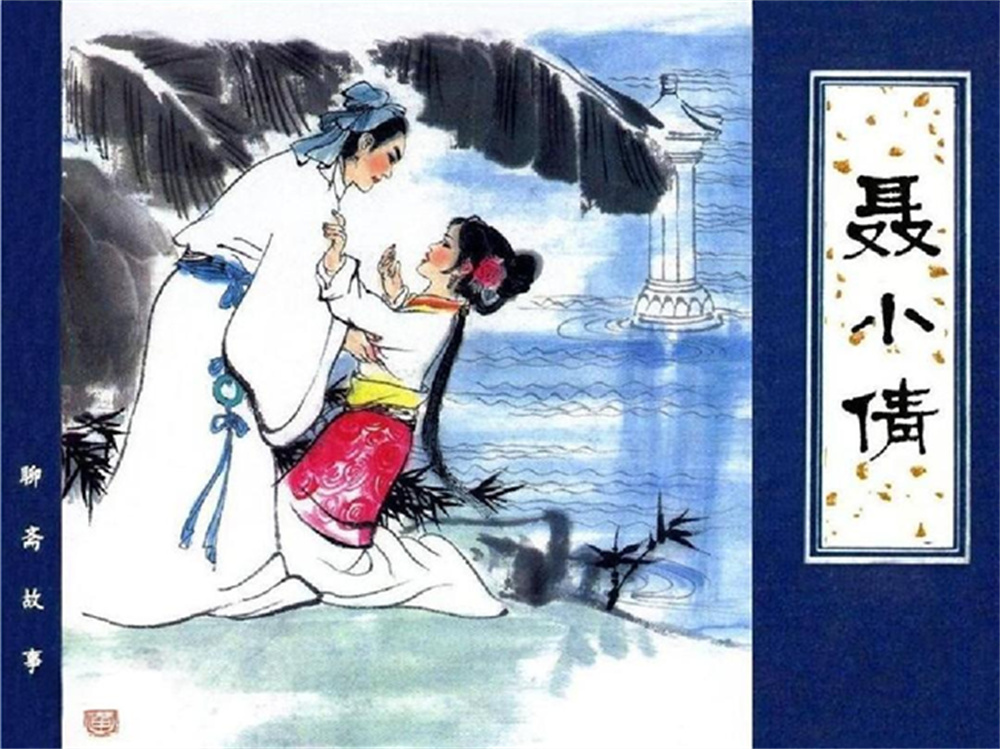
"Nie Xiaoqian"
At the end of this novel, Pu Songling did not turn into a Yishi to express his emotions about the plot and characters. But even if he jumps out and chats a few words, whether seriously or jokingly, the beauty of "Strange Stories from a Chinese Studio" does not stop at the level of slaying corruption and cruelty, and elucidating the world's human heart and philosophy of life, but through Pu Songling's genius-like wonder. With uncanny imagination and wonderful penmanship, he vividly depicts a perceptible and knowable utopia full of real life and true feelings.
Just like "Nie Xiaoqian" on the surface, it exhorts the world to avoid sex and greed. Only with a noble personality can one be unafraid of ghosts and monsters. Not only can he be protected by immortals, but he can also be granted a wife and a wife. In fact, the most impressive thing is that the characters have distinct personalities, It has both form and spirit, and includes scenes such as whispers under the moon, refusal, sword strikes, and wandering late at night. It may be homely and simple, or fragrant and weird, or affectionate. The theme of the story also has a "mythical" meaning and is the ultimate questioning of desire and emotion. Pu Songling used words to open up the two channels of Ren and Governor, and the stories he wrote can still move people's hearts even after hundreds of years.
Once the door to the strange world is opened, the "principle" the story wants to express is just one of the treasures. As for what else can be realized, it all depends on the reader's personal temperament. Anyway, the vast and rich artistic world of "Strange Stories from a Chinese Studio" has been left to future generations. Enough room for adaptation. "Nie Xiaoqian" can almost be regarded as the most adapted masterpiece in the entire collection of novels. Among the most famous film adaptations, in addition to the 1987 version, there is also "A Chinese Ghost Story" directed by Li Hanxiang in 1960 and starring Leti and Zhao Lei. 》.
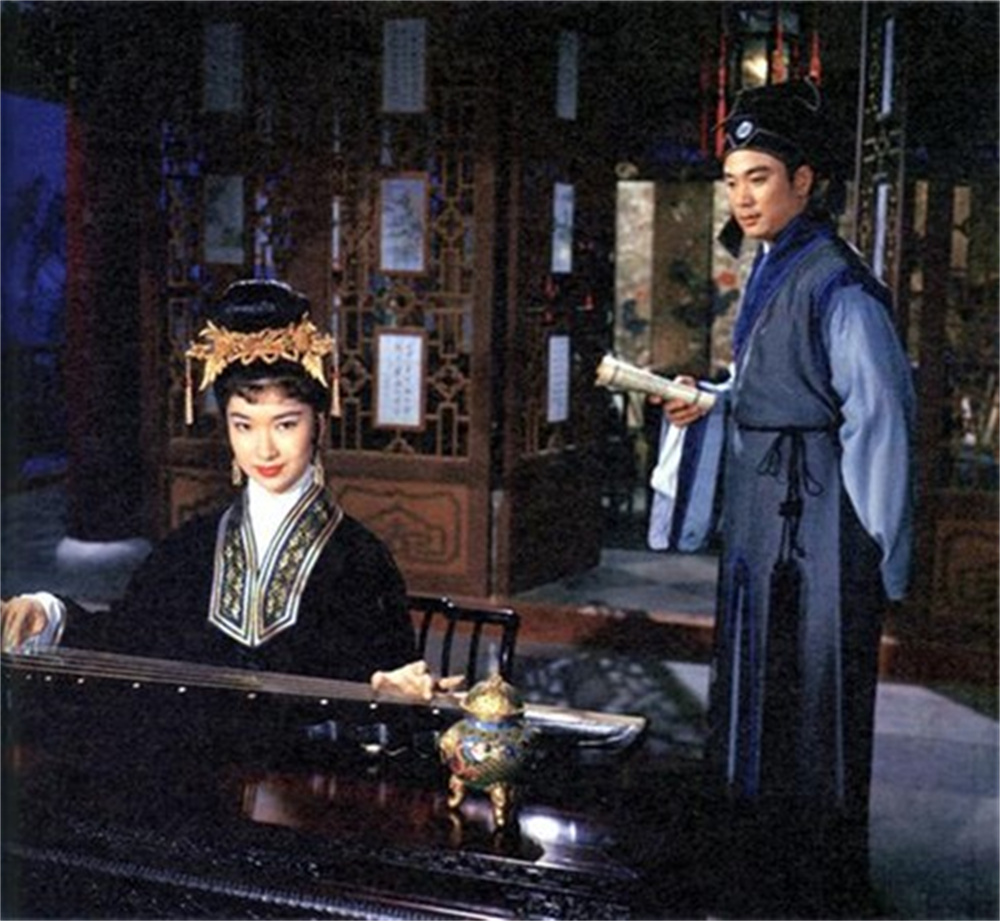
"A Chinese Ghost Story" (1960)
Li Hanxiang's films have always been gorgeous in style, and their presentation is exquisite. The story is based on the first half of the original work, and ends with Yan Chixia defeating the old demon and Ning Nie facing each other. Now it seems that the whole film is not too moralistic; but the beauty lies in the deserted temple, ancient pagoda, Everything that happens in the courtyards and pavilions is embellished with opera, poetry, calligraphy and painting. Ning Caichen's image of a handsome gentleman and Xiaoqian's persona of an official and daughter are all very naturally internalized into the imagination of ancient China. In this way, certain scenes, such as Ning Caichen being attracted by the sound of Xiaoqian's piano and peeping on the female relatives of wealthy families playing cards, have a sense of immediate vision of the Grand View Garden in "A Dream of Red Mansions", and the film thus embodies the daily expression of Pu Songling's ghost and fox world.
I don’t know if it’s because King Hu serves as the assistant director, but the situational integration and narrative rhythm of this version of “A Chinese Ghost Story” are very commendable. The slight horror rendering and the right amount of Chinese humor add to the viewing pleasure of the film. An off-topic Easter egg, Zhao Lei, who plays Ning Caichen in the play, is a standard handsome guy, but somehow he looks a bit like Shen Teng, so the more seriously he rejects the beautiful girl Letty, the more people can't help but smile. .
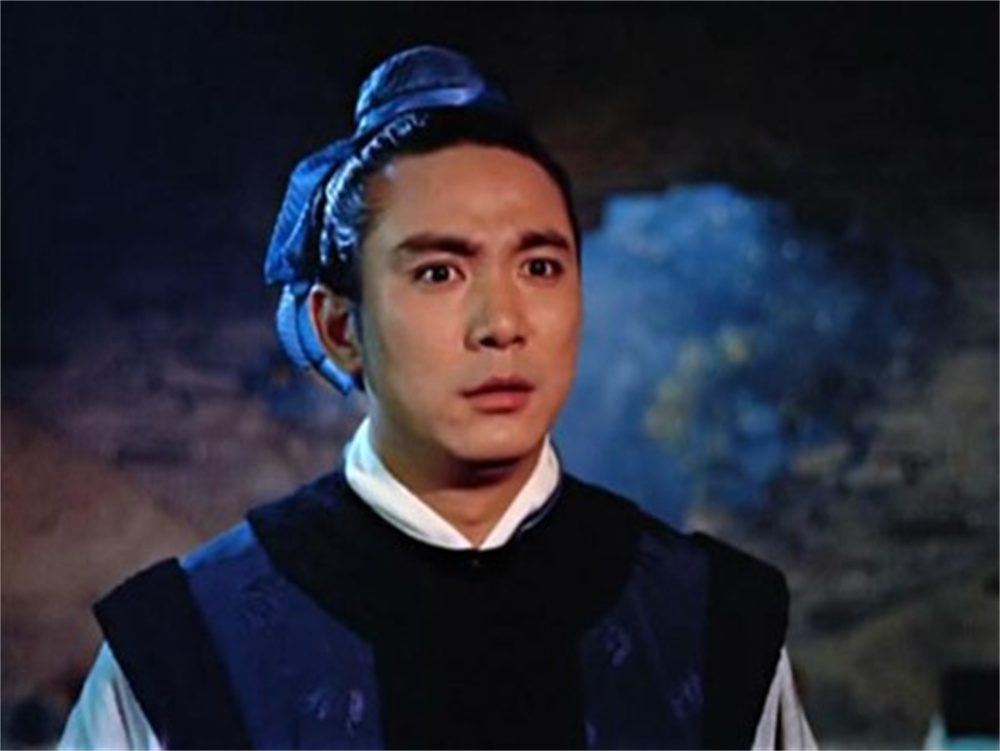
Stills from "A Chinese Ghost Story" (1960)
Finally, let’s talk about the 1987 version of “A Chinese Ghost Story”. Directed by Cheng Xiaodong, produced by Tsui Hark, starring Leslie Cheung and Joey Wong. Today, it seems that there is nothing to say except admiration for such a combination. In his monograph "Secrets of Hong Kong Film", American scholar David Bordwell specifically analyzed the highly condensed expressiveness of the 1987 version of "A Chinese Ghost Story" and believed that the exquisite combination of fast editing and exquisite picture design produced an eye-catching effect. Amazing master-level effects. For example, a scene in which Ning Caichen accidentally enters a haunted house, and the tree demon grandma and the female ghost Xiao Qing are eyeing each other, and Xiaoqian cleverly resolves the crisis, "presents a liquid texture", tight, smooth, and superb, showing the Hong Kong director His understanding of on-screen action was superior to that of his Hollywood contemporaries.
This was the result of many factors including the prosperity of overseas exports and local markets of Hong Kong films at that time, the prevalence of craftsmanship, years of practice in real-life shooting, and the overall improvement of the economy. It was the result of the sincere cooperation between the director, producer and a group of creators, and it was also Leslie Cheung, Wang Zuxian, Wu Ma (Yan Chixia), Liu Siu Ming (grandma), Lin Wei (Xiahou Swordsman), Xue Zhilun (Xiao Qing) and other actors, no matter how many scenes they have, they give wonderful performances.
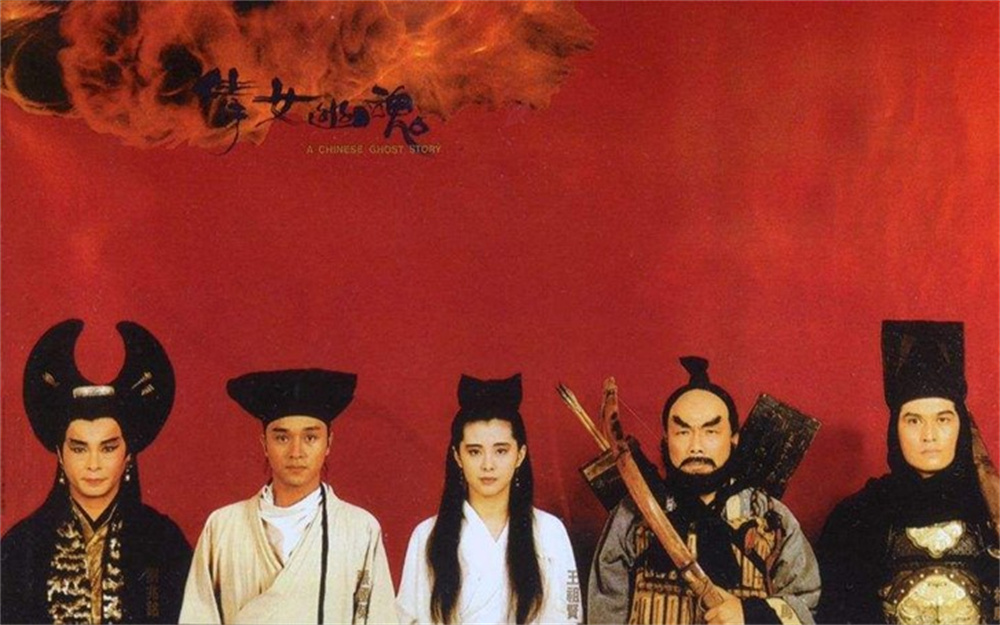
Stills from "A Chinese Ghost Story" (1987)
At the time of filming this film, director Cheng Siu-tung had already attracted attention in many films with his excellent martial arts direction, and producer Tsui Hark was a backbone of the "New Wave" of Hong Kong films. At that time, Tsui Hark was filming and supervising several films at the same time. He was extremely energetic and was said to be able to work continuously for 36 hours without rest or sleep. Although "A Chinese Ghost Story" was directed by Cheng Xiaodong, many scenes were shot and edited by Tsui Hark. The film's postmodern irony and historical identity speculation are also inspired by Tsui Hark's "The Swordsman" and "Once Upon a Time" etc. The shadow of the work. Therefore, it is difficult to say who is the main creator of the two core creators of this film, but Cheng Xiaodong's martial arts design and scene scheduling and Tsui Hark's unbridled imagination, stunt exploration, and sublimation of the theme ultimately produced a film that has always been imitated and never surpassed. ” screen classic.
Interestingly, Leslie Cheung had already confirmed that he would play Ning Caichen, but the role of the heroine Xiaoqian was always vacant. Tsui Hark originally preferred Nakamori Akina, but felt that Wang Zuxian was too tall and not graceful enough. Unexpectedly, the latter's audition turned out to be amazingly beautiful and graceful. She has the plaintive charm of a classical beauty in her melancholy, and she is innocent and slightly sexy. The original text of "Liao Zhai" describes Nie Xiaoqian as "beautiful", and people see her as "not suspicious of ghosts, but suspicious of immortals." Xiaoqian played by Wang Zuxian has exactly the ambiguity of ghosts and immortals. Such contradictory beauty finally realizes the actor and the film of mutual achievement.
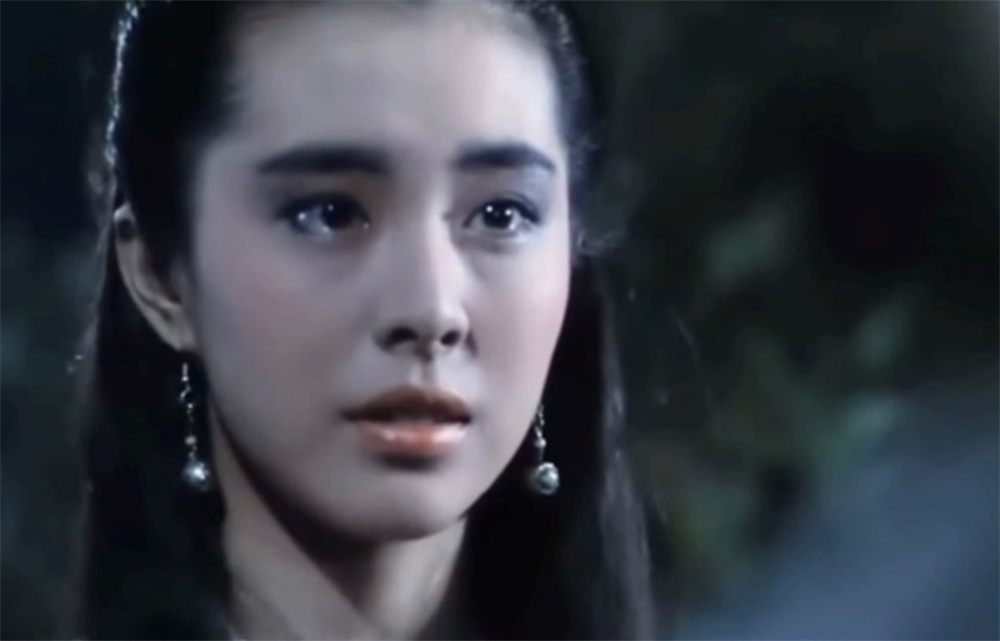
Wang Zuxian's version of Xiaoqian
As for Leslie Cheung in the film, some people believe that "after him, there will be no Ning Caichen", which is actually irrefutable. At first glance, he looks like an ordinary down-and-out scholar in troubled times. He is weak, lonely, and miserable, but he has the pure and firm eyes of a scholar. After seeing Xiaoqian, I gradually developed feelings for her. She is youthful, cute, and cute, and she will not look at anything inappropriate. Faced with strong enemies, he was not afraid of hardships and dangers, and actually defeated his fear in danger after danger, giving birth to a man's heroic spirit. Of course he rescued her out of love, but not for possession, only for fulfillment. In true love, it is even more rare to show innocent sincerity. Fortunately, Leslie Cheung and only Leslie Cheung could perform such a rich Ning Caichen.
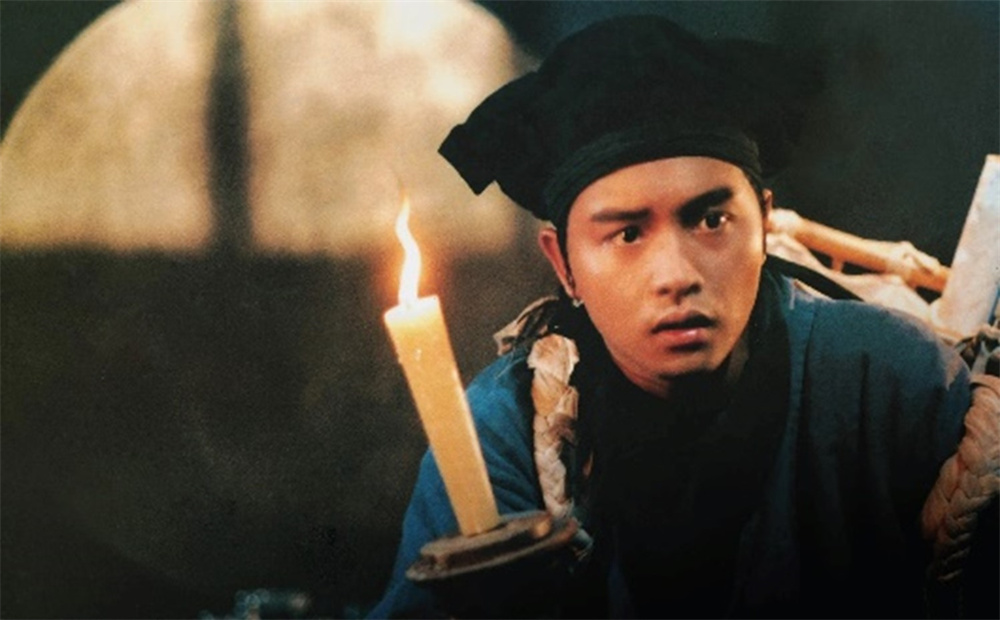
Leslie Cheung's version of Ning Caichen
This "A Chinese Ghost Story" clearly pays homage to the version directed by Li Hanxiang. The story structure is consistent, and even the plots such as the poem on the painting, entering the haunted house at night, and the battle between good and evil are exactly the same. Comparing the two, the 60 version is as classical, solemn and graceful as a lady, while the 87 version is more like a rebellious girl at the end of the century who seems lively and quirky but reads a lot and has many ideas. Yes, this movie has the unique "fin de siècle" aesthetic of Hong Kong movies in the 1980s and 1990s - everything is crazy and everything is excessive, full of restlessness, restlessness and exaggeration, and people are eager to find or grasp a little material or spiritual To counteract the sense of wandering of small individuals in history, the glitz fades away, the truth comes to light, and the eagerness becomes more sincere.
Ning Caichen went to the small town with a book basket and ledger to collect the accounts. The people in the blurry market were greedy and anxious for profit. They knew clearly that there was something wrong with Lanruo Temple and yet they let Ning Caichen stay there with ill intentions. They saw him really... If you want to go to a deserted temple, the next second someone will come to sell you a coffin. The human world is still like this, needless to say, the demon realm, where the weak and the strong prey on each other, there will never be peace.
The caricature-like vilification of the people in the small town here externalizes the lonely heart of the postmodern atomized individual, with subtle irony of existentialism. On the other hand, it further sets off the "truth" of Ning Caichen and Nie Xiaoqian. The two of them truly love each other and have a true nature. One is obviously a weak scholar but dares to compete with a thousand-year-old demon. The other is obviously controlled by others and still seeks a way out for others. They are equally infatuated and determined. Such a reckless sacrifice for love, a powerful "truth" born out of nothingness and absurdity, moved Yan Chixia, who was originally discouraged by the world, and also moved the men and women outside the screen.
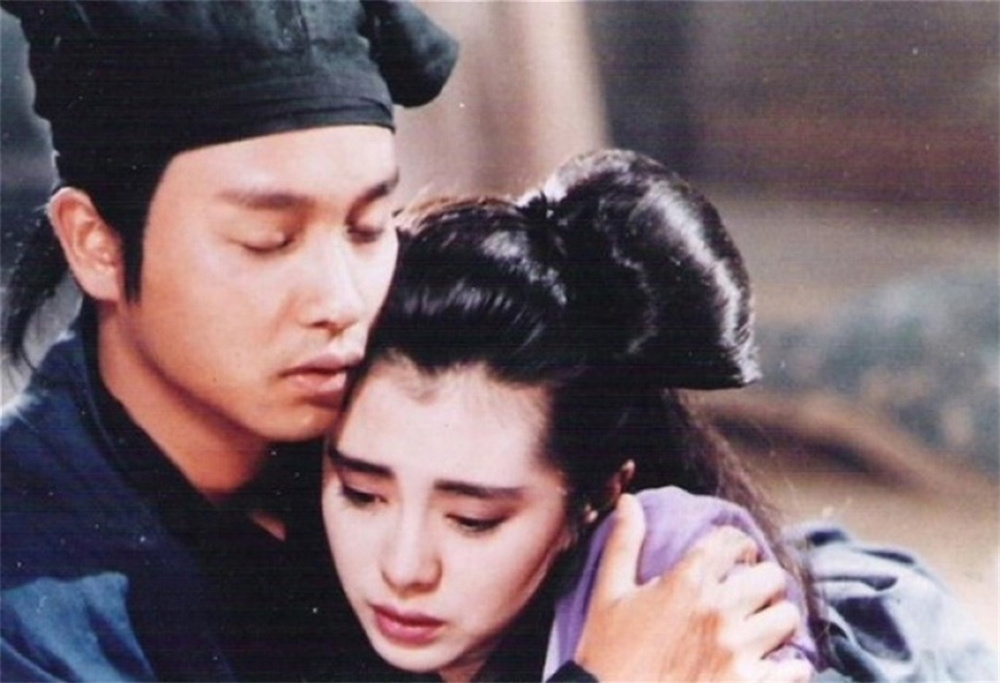
Stills from "A Chinese Ghost Story" (1987)
Of course, it’s not just love or courage that makes people sigh. After a vigorous love fight, Ning Caichen still lost Nie Xiaoqian. With the sad song of "Dawn Never Comes Again", the two had to say goodbye after a brief reunion. From the original work to the previous work, the classical happy ending finally failed to soothe the spiritual thirst of modern audiences. In an era when the meaning of Nietzsche's declaration that "God is dead" is uncertain, "truth" in the classical sense is precious and fragile, tragic. The distinction between sex is more in line with the aesthetic expectations of contemporary audiences.
At the end of the film, the troubled times are still there, and suddenly the beauty is no longer there. Ning Caichen and Yan Chixia still ride towards the rainbow that represents hope. Perhaps, loss and disapproval are necessary to find meaning.
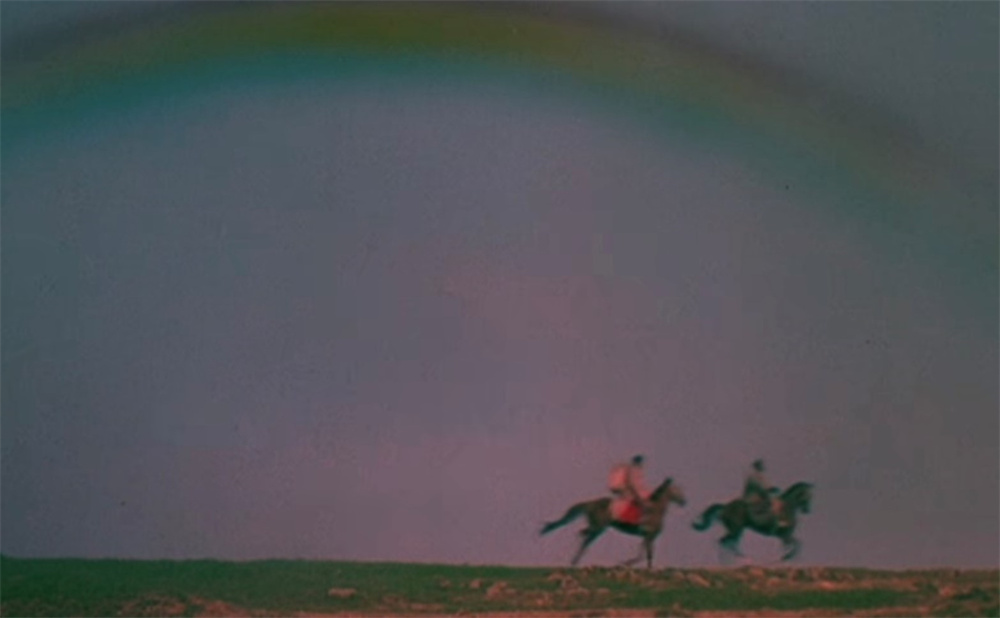
Screenshot from "A Chinese Ghost Story" (1987)

